The post SUCCESS: Our team closes another orphanage in Bulgaria appeared first on Hope and Homes for Children.
]]>After years of tireless work, our team in Bulgaria has successfully closed the ‘Home for Medical and Social Care for Children’ orphanage in Kardjali.
Also known as a ‘baby home’, the orphanage housed up to 40 children. Now, thanks to you, all these children are no longer shut away. No longer afraid. No longer alone.
This orphanage closure marks another huge milestone for our team in Bulgaria. Now, there are only three orphanages left to close. Thanks to your donations, Bulgaria is heading toward an orphanage-free future.
We’re on a mission to bring children out of orphanages and back to family. Donate today.
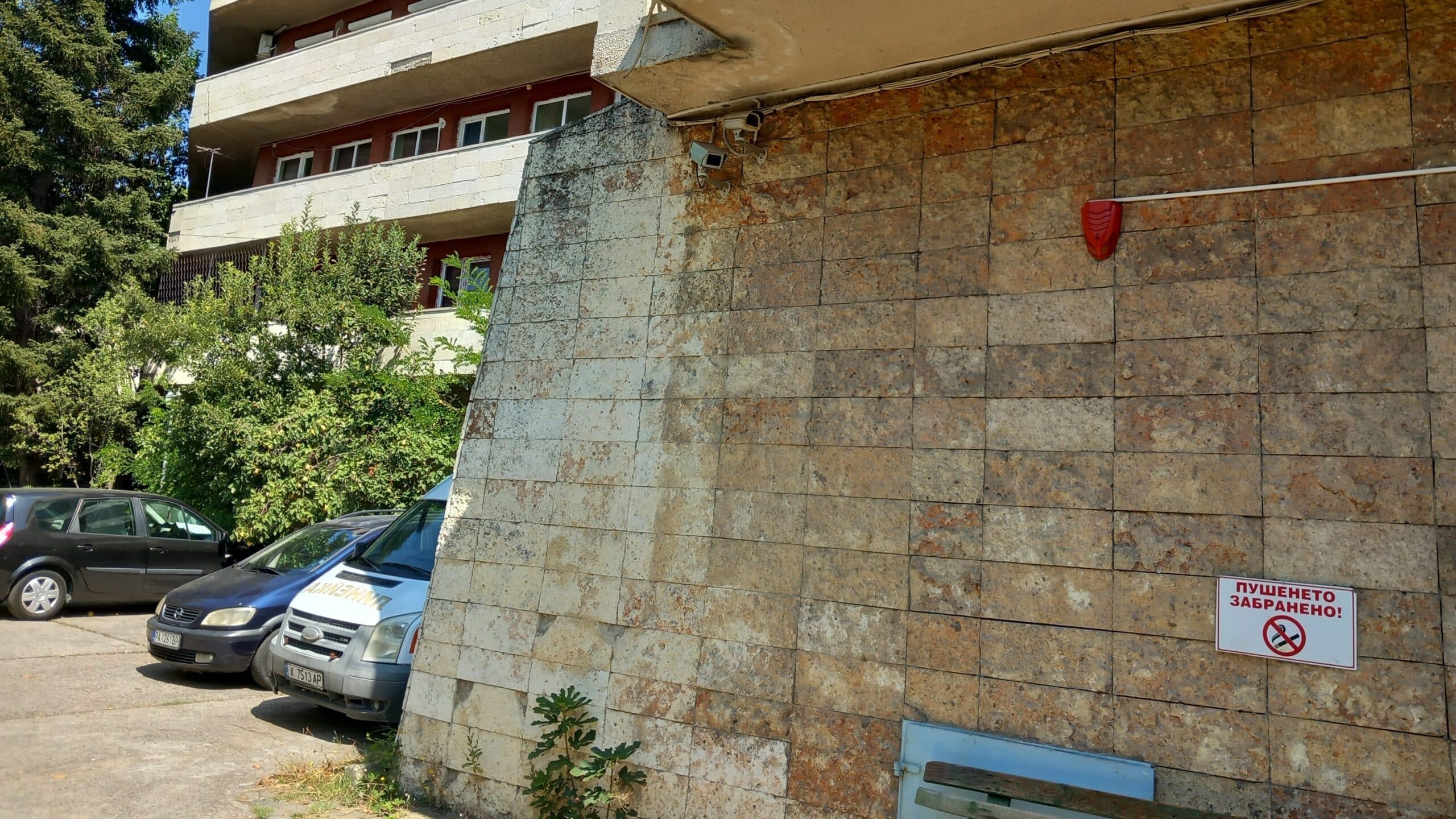
Hope and Homes for Children
How many children lived inside the orphanage?
Around 40 children were shut away inside the ‘Home for Medical and Social Care for Children’ institution. Most were under three. Several had disabilities.
Many struggling parents of children with disabilities can’t access the support they need. As a result, they feel pushed to place their children in orphanages. Just to find them care.
Find out more about why children end up in orphanages here.
Sadly, orphanages don’t protect children. They put them in harm’s way. The majority of children in institutional care will face violence, abuse and neglect. Children with disabilities are at an even higher risk.
Find out more about how orphanages harm children.
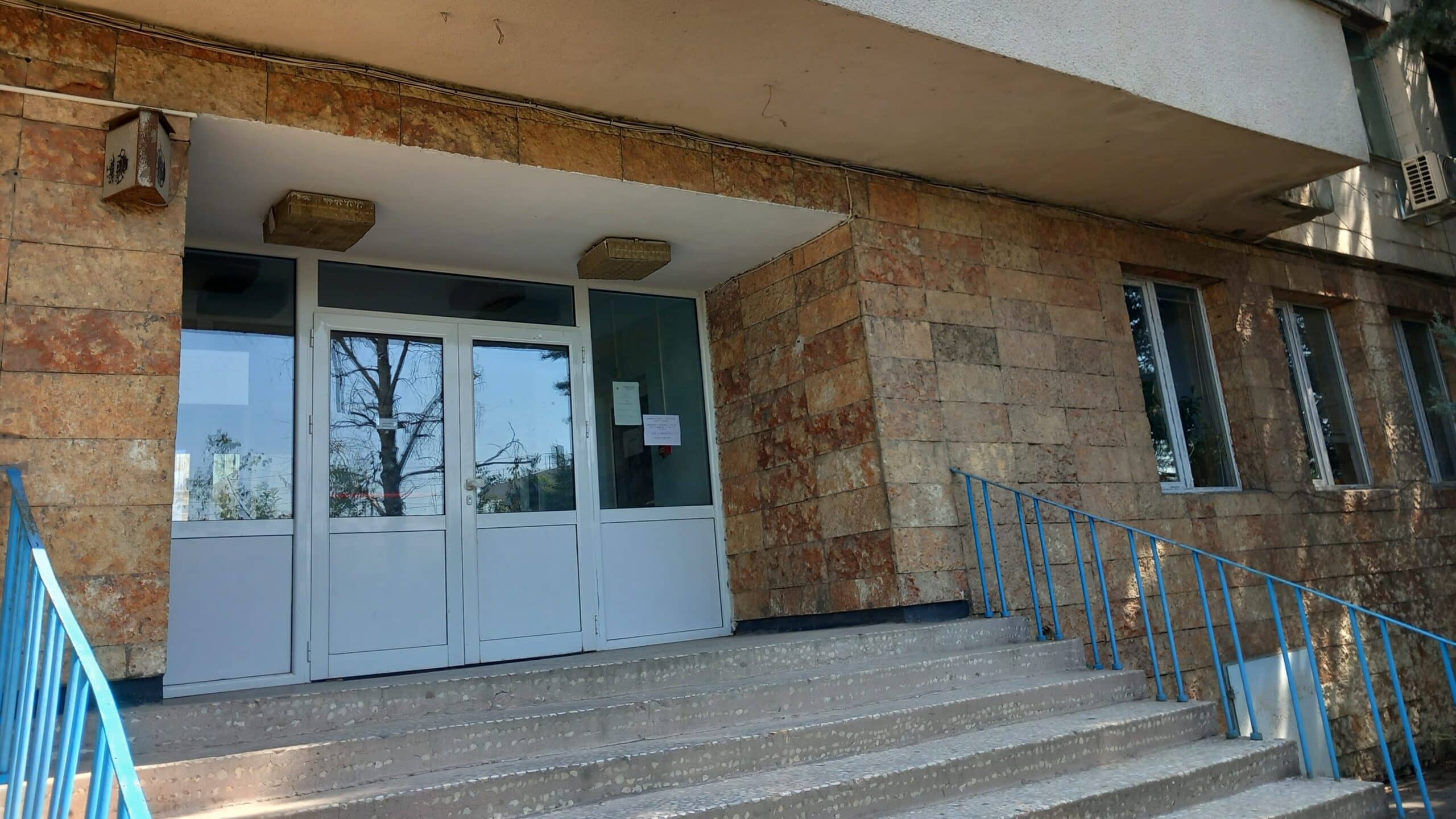
Hope and Homes for Children
What was it like inside the orphanage?
One of the last remaining orphanages in Bulgaria, the ‘Home for Medical and Social Care for Children’ institution was dilapidated, with no natural light and broken play equipment. But the worst part, as remembered by Kremena Stoyanova, National Coordinator for Hope and Homes for Children South Bulgaria, was the silence.
“I always have a picture in my mind of this home. Long and very wide corridors and a rehabilitation therapist holding the hand of a two-year-old child. Footsteps clanging in the empty space. Those sounds in the darkness are the picture I want to erase.”
Kremena Stoyanova, National Coordinator for Hope and Homes for Children South Bulgaria
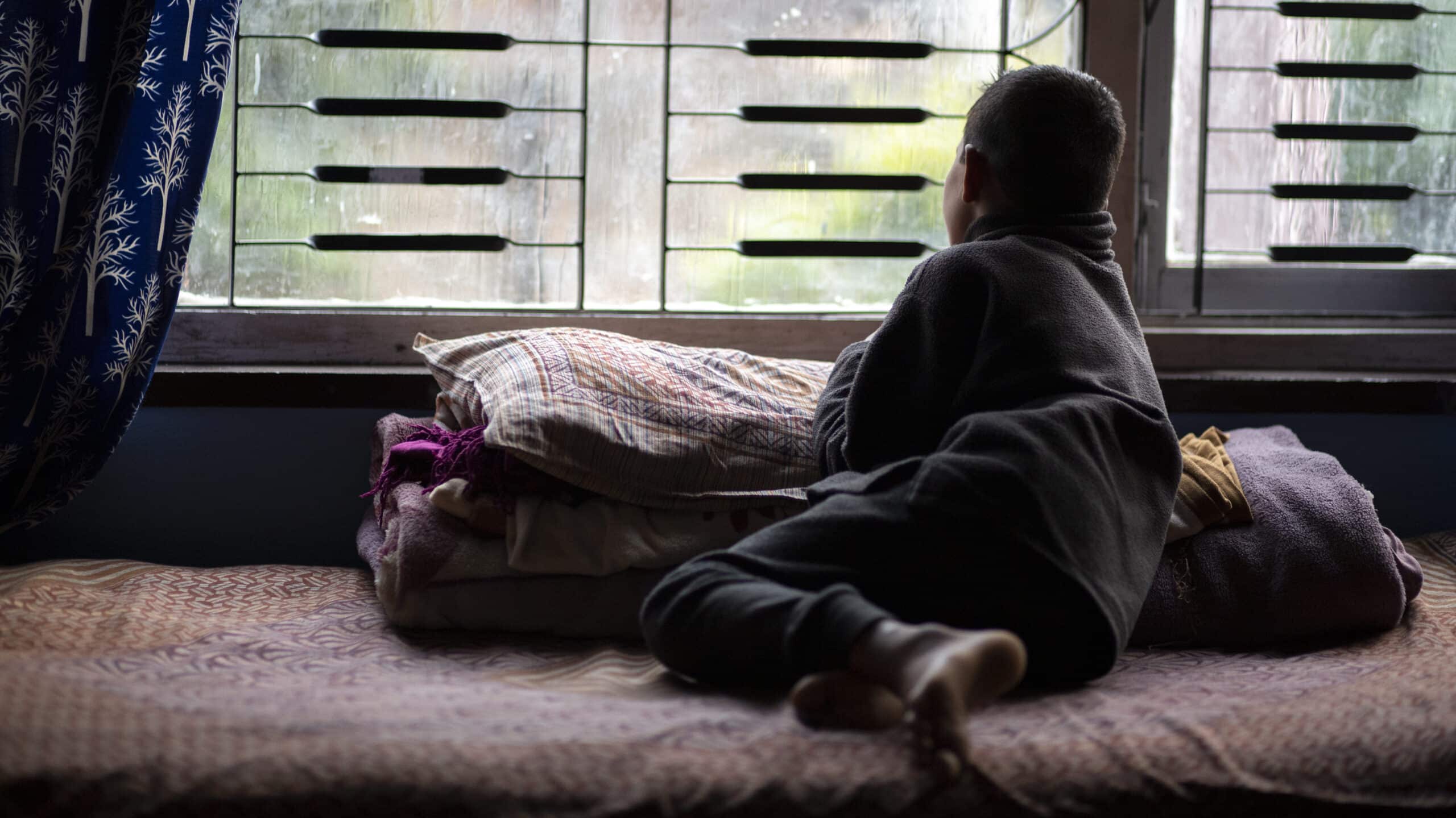
Kishor Sharma / Hope and Homes for Children
Well-meaning members of the community used to raise funds for the orphanage. But as with many orphanages, it was hard to see how these efforts benefited the children. Ivanka Taushanova, our Regional Coordinator in Kardjali, remembers the first time she realised this:
“I was a teacher in a local school, and every year we did a campaign to buy toys for the children in the orphanage. When I first went to the orphanage there were no toys. Everything was quiet. There wasn’t even any childlike curiosity.”
“Everything was quiet. There wasn’t even any childlike curiosity.”
Ivanka Taushanova, Regional Coordinator in Kardjali
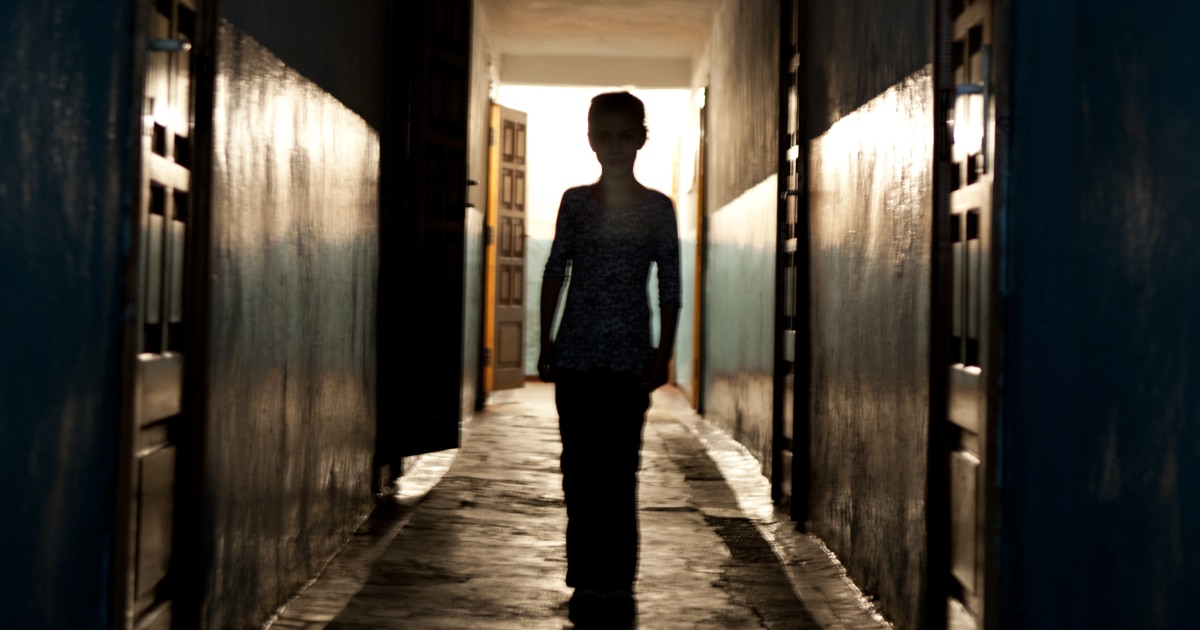
Hope and Homes for Children
How do we bring children back to family?
After signing an MOU with the regional government in 2015, we started working on getting the children out of the orphanage and back to family, or into family-based care.
To do this, we pursue four main options:
- Reunite children with their birth families. The ideal solution, especially when 80% of children in orphanages around the world aren’t orphans.
- Reunite children with their relatives. When parents aren’t able to care for their children, we can support their immediate family members to raise them at home.
- Create new families. Through fostering or adoption, we can find children from orphanages loving new families to grow up in.
- Bring children into community-based care. Sometimes, it’s necessary for children to live in alternative community-based care spaces. This is a great solution when children have complicated or round-the-clock support needs. We ensure these spaces are family-style solutions, with a specific amount of carers to children to ensure everyone’s getting the love and attention they need.
For more information on how we bring children back to family, read more about our solutions here.

Hope and Homes for Children
Closing down the orphanage
Thanks to your support, on August 1st 2024, the orphanage was finally closed down. Boryana Klimentova, Programme Director of Hope and Homes for Children Bulgaria, remembers the day well.
“It was a beautiful hot day, and the sun seemed to be showing us the right way. I felt joy”

Hope and Homes for Children
We ensured each of the children living inside were safe, secure and in loving family-style homes – through being reunited with their birth families, adoption, fostering or placement in medical centres for disabled children with 24/7 care.
What’s next?
Riding on our success, our team in Bulgaria is gearing up for the next big win. With your support, we’re ready to shut down the last three orphanages in the country and bring every child home to a loving family.
But we can’t do it without you.
Will you help us close the last remaining orphanages in Bulgaria and bring the children living inside back to family? Donate today.
The post SUCCESS: Our team closes another orphanage in Bulgaria appeared first on Hope and Homes for Children.
]]>The post Ukraine: Support Needed to End Institutionalisation of Children appeared first on Hope and Homes for Children.
]]>Recovery Conference Should Prioritise Family, Community Care
Disability Rights International, Hope and Homes for Children, Human Rights Watch, LumosOfficials and business leaders at the Ukraine Recovery Conference in London on 21-22 June 2023 should ensure that any “Marshal Plan” for the war-ravaged country includes ensuring children are not separated from their families and shutting down its network of 700 state-run children’s institutions, Disability Rights International, Hope and Homes for Children, Human Rights Watch and Lumos said today.
Even amid the brutal conflict, the Ukrainian government has rightly pledged to ensure “the right of every child to live in a family”. The groups called on Ukraine and its partners to implement key recommendations for the needed care-system reforms, issued on 14 June by 16 organisations with expertise in child protection, disability inclusion and human rights. Replacing Ukraine’s institutional care system, a Soviet-era legacy, with modern social services that strengthen families to help keep them together, and keep children out of institutions, should be central to rebuilding plans, the groups said.
Russia’s invasion of Ukraine has been devastating for children, with recent reports highlighting the grave risks and human rights violations experienced by children in residential institutions. As of February 2022, before the full-scale invasion, Ukraine had one of the highest rates of child institutionalisation in the world, despite the fact that over 90 percent of these children had a living parent. War in this country has intensified some of the leading drivers for family separation and child institutionalisation: poverty, disability and conflict.
“There’s a hidden humanitarian crisis playing out in Ukraine, where millions of families are displaced, social services are in tatters, unemployment is growing, food prices are rocketing, daily air raids are the norm and trauma from Russian occupation is widespread. As a result, many parents are struggling to cope, and thousands of children are at risk of being placed in harmful institutions. Now, at a time of war, children need loving and comforting families more than ever. The Ukraine Recovery Conference offers an incredible opportunity to talk about physical reconstruction of buildings, roads and infrastructure, but it must also address social reconstruction that directly serves families and children. This must include a commitment to closing every last children’s institution in Ukraine, and creating a modern care system that helps to keep families together. Families are the future of Ukraine, and leaders at the recovery conference must not ignore this.”
Mark Waddington, CEO of Hope and Homes for Children
Peter McDermott, CEO at Lumos, said:
“The coming together of Ukraine and key partners at this Recovery Conference marks a crucial moment for the international community to build the foundations for – and take significant steps towards – a future where Ukrainian children are not trapped in orphanages, but where families are equipped with the resources and community services they need to take care of children where they belong – at home.”
Eric Rosenthal, Executive director of DRI said:
“With massive international aid being channelled toward Ukraine we call on donors to prioritise family inclusion of children with disabilities and ensure meaningful participation of persons with disabilities and their representative organisations in all aspects of funding, policy making, and program development and implementation.”
Bill Van Esveld, associate children’s rights director at Human Rights Watch, said:
“Russia’s invasion of Ukraine has exacerbated the harm faced by institutionalized children, and there’s no time to waste. Supporting Ukraine’s recovery means supporting reforms to protect every Ukrainian child’s right to live in a family and a community.”
The 16 groups, with years of experience working in Ukraine, provided specific recommendations to the Ukrainian government, its international partners, and the EU in particular, to realise the right of all children in Ukraine to family and community life, free from the harm, neglect and abuse that are common practice in institutions:
- Ukraine should establish a single national strategy that fully transforms the care system and end the use of residential institutions for all children, including children with disabilities.
- Donors and international partners should dedicate long-term funding to this reform strategy, prioritise funding to develop inclusive, family- and community-based care services, and prohibit funding to institutions.
The EU accession process for Ukraine gives the EU a crucial role as a champion and catalyst for care reform for children in Ukraine, the groups said. The prospect of Ukraine becoming an EU Member means that it is poised to unlock unprecedented attention, resources and technical assistance to ensure the country transitions from an institutional to a family- and community-based care system. It is the international donor community’s role to support Ukraine’s care reform efforts and conform to EU accession requirements, the co-signatories concluded.
Read the joint statement here.
For press enquiries and expert perspectives on children’s care reform in Ukraine, please contact us.
The post Ukraine: Support Needed to End Institutionalisation of Children appeared first on Hope and Homes for Children.
]]>The post New partners ergobaby to help us keep families close appeared first on Hope and Homes for Children.
]]>We’ve been working with families for nearly 30 years to keep children out of orphanages, and safe at home, close to the people who love them. So it was an easy decision to partner with ergobaby, the baby carrier experts who share our intimate understanding of the essential role of family in providing the love and care all children need.
Every baby deserves to experience those precious moments of connection with their mum and dad. It’s what makes them feel safe and loved.
For small children this is even more important – for every 3 months spent in an orphanage, children lose on average 1 month’s growth.
D.E.Johnson,‘Medical and Developmental Sequelae of Early Childhood Institutionalization in Eastern European Adoptees’, in The Minnesota Symposia on Child Psychology. Vol 31: The Effects of Early Adversity on Neurobehavioral Development, ed. by Nelson (Mahwah, NJ: Lawrence Erlbaum Associates Publishers, 2001).
That’s why our teams support thousands of parents every year to give their children the best start in life, by keeping them close.
And to celebrate the start of our partnership, ergobaby delivered free Airmesh carriers from their new range to Moldovan families supported by our programmes. The carriers are supporting mothers with the smallest of babies, helping families bond, stay close and together:
"I am just happy to receive this baby carrier. I was thinking how I could raise some money to buy one, maybe a second hand, so that I could hold my baby in my arms as long as possible. It is really comfortable for me and my child to feel close."
Maria, mother of 5 children
"I would never have known what it is like to carry your child in your arms so comfortably, if I didn't have a baby carrier now.”
Ana, mother of 6 children
“Since I have been carrying my child with Ergobaby, he is no longer agitated; it seems to help him against intestinal discomfort. That's what I think. He became calmer. I am really happy.”
Galina, supported by our programmes partner CCF Moldova
All families were delighted to receive these carriers, and shared their stories with our programme partners CCF Moldova. Names have been changed.
In addition, ergobaby’s vital support will help us raise awareness amongst up to 100,000 parents and carers, of the harm done by orphanages and the importance of supporting children and parents to make this connection.
We're delighted to be working with Ergobaby on our shared mission: to support parents everywhere to have those special moments of connection with their children, by keeping them close.
Angharad McKenzie, Director of Global Marketing Communications and Fundraising
We’re excited to invite the ergobaby community of new parents and grandparents to join our movement to consign orphanages to history.
“We are really delighted to introduce our partnership with Hope and Homes for Children, a global expert in the field of deinstitutionalisation.
Our partnership will help Hope and Homes for Children to raise awareness of the harm caused by orphanages and the emphasis of supporting children and parents into loving and stable families whilst understanding the origin of family breakdown.“
Holly Brewer, Marketing Manager ergobaby UK
The post New partners ergobaby to help us keep families close appeared first on Hope and Homes for Children.
]]>The post Farewell to long-term patron Lily Safra appeared first on Hope and Homes for Children.
]]>Mrs Lily Safra was first introduced to our work in 2004 through friends. Since then, she contributed, via the Edmond J Safra Foundation, almost £4m towards transforming the care system in Romania. Most recently, her generous support for our emergency appeal during the COVID pandemic meant that we could continue our life saving work under the toughest of circumstances, and in 2021, Hope and Homes for Children’s Romania Programme was featured in the Edmond J Safra Foundation’s Dignity Book.
This sustained and significant investment has played a key role in eliminating orphanages – the first step to ensuring children globally can be cared for in safe, supported families.
Mrs Safra shared her commitment to caring for others with her husband, Mr Edmond J. Safra, one of the twentieth century’s most accomplished bankers and founder of the Edmond J. Safra Foundation. She had chaired this Foundation since 1999, supporting projects related to education, science and medicine, religion, culture, and humanitarian relief in over 40 countries.
In May 2012, Christie’s Geneva hosted an auction of 70 pieces of Safra’s personal jewellery collection. The ‘Jewels for Hope’ sale included 18 pieces by JAR, the largest personal collection designed by the jeweller ever to be sold. The entire profits from the sale were donated to 32 charitable institutions around the world in the fields of healthcare, education, religion and culture, including Hope and Homes for Children.
Like her philanthropy, Mrs. Safra’s life was dynamic and global. She spoke six languages and made her home at different times in seven countries. She was known for her elegance, independence, generosity, and eye for detail.
In recognition of her philanthropic leadership, Mrs Safra was awarded honorary doctorates and fellowships from universities around the world. She was made Chevalier dans l’Ordre de Léopold II by the King of Belgium. She is a Commandeur of France’s Ordre des Arts et des Lettres and Officier de la Légion d’honneur.
Mrs Safra was a Patron of Hope and Homes for Children from 2010 right up until her death. In addition, she served on the boards of the Michael J. Fox Foundation for Parkinson’s Research and the Foundation for the National Institutes of Health (USA).
She was also a loving mother, grandmother, and great-grandmother and fully understood the importance of family.
Mrs. Safra regularly said, “It was with Edmond that I learned the joy of giving, as well as that when you support people who are making a real difference in the world, you end up receiving far more than you give.”
The post Farewell to long-term patron Lily Safra appeared first on Hope and Homes for Children.
]]>The post On the Frontline: News from our Teams appeared first on Hope and Homes for Children.
]]>Richard Munyaneza, Communications and Advocacy Coordinator, Hope and Homes for Children, Rwanda.
When the pandemic started, everyone was afraid. One of our colleagues said, “There were families whose cases were about to be closed but due to COVID, have lost their economic status, and now they are kept under Hope and Homes for Children regular support.
Adapting to new ways of working whilst maintaining the quality of care needed by those we serve during COVID hasn’t always been easy. However, there have been some positive outcomes to this unpredictable pandemic.
No longer able to physically visit families, we intensified our phone calls and engaged actively in community structures, for example Friends of families, Community Health workers and the National Council for Persons with Disabilities committees. This turned out to be an effective way to carry out community monitoring and support the families under our care.
Before COVID, we had to obtain medication for families and children with disabilities and be the point of access for this. Now, due to COVID, we’ve been able to link families with medical facilities for them to access necessary medication directly.
The pandemic also added another layer of credibility to our work in Rwanda. Some families were very surprised to see us on the frontline continuing to support families, even during the worst lockdowns. One parent said:
“I thought that you were going to stop supporting us because of COVID. But seeing you continuing to call on us, provide food, and care for us, strengthened us.”
Even though COVID was very hard for everyone, it’s shown how we can be resilient as an organisation: adapting to the measures put into place to reduce the spread of COVID whilst effectively continuing to implement activities and services to vulnerable families and children.
India
Subhadeep Adhikary, Program Manager – Child Protection, Child in Need Institute (CINI), our partner in India.
As of 20th April 2022, official figures from the Indian Government and World Health Organisation (WHO), show India has the second-highest number of confirmed COVID cases in the world (after the USA) with 43,047,594 reported cases of infection and the third-highest number of COVID deaths (after the USA and Brazil) at 522,006 deaths. The impact on communities, families and children, many of whom were already extremely vulnerable before the pandemic started, has been significant. In our project areas in Jharkhand, we have seen many families plummet further into poverty, children’s physical and mental health negatively affected and an increased risk of children being trafficked and forced into child labour.
Many of our activities with the community were put on hold due to a government directive that restricted face-to-face meetings, community gatherings and supporting child care institutions in their transition. This meant we had to be more innovative in our approach to ensure we could continue supporting the community. We made full use of technology to provide remote support, health information, counselling, and monitoring through Whatsapp groups and other forms of mobile communication. Through our community workers we were able to keep linking families and children to necessary Government support services including health centres, sponsorship schemes and food programs.
We developed a COVID mobile ‘app’ which was rolled-out to all frontline workers in our project areas to identify and register children who were vulnerable to separation either due to losing a parent or falling into a desperate situation. Using this ‘app’ we were able to keep 60 children – who would otherwise have been exposed to trafficking, being institutionalised, or both – safe with a parent or caregiver.
As we emerge from the pandemic we will build on the innovations it has born to strengthen our work in communities.
Nepal
Anju Pun, Country Director, Forget Me Not, our partner in Nepal
On 31 March 2022 Nepal’s COVID count reached 978,4261 . The heavy rains in mid-October in addition to the pandemic impacted the lives of many with job losses and increase in food and fuel prices. To make things worse there is a growing fear of shortages in the coming months. Despite the challenges, we continued to support government’s deinstitutionalisation efforts and provided our support to the most vulnerable and marginalised children and families.
In January, we saw rising COVID cases. This variant caught most of our team members and our children in transitional care. Our 24 team members, 17 children under case management, and 1 parent of reunified children were infected with the Omicron variant. Luckily, everyone has fully recovered and is back to their normal life.
With Hope and Homes for Children’s support, we’re currently managing 74 cases of reunited children living in 16 districts with their families or in familybased alternative care. During the last 6 months (Oct 2021 – Mar 2022), our reintegration team made 102 in-person family monitoring and follow up visits; provided food support to 38 children and their families; made 420 remote phone calls; and provided education support to 52 children to ensure their well-being and safety.
We can see the resilience of children through the eyes of biological sisters Susheli (12) and Sabita (10). Every evening after school, the two light up their room with laughter and giggles, share their day with family, climb trees and huddle together to study. They were rescued from an abusive and illegal orphanage in Kathmandu and were reunited with their elder sister and brother-in-law in December 2020. This successful family re-integration is a beautiful example of what can be achieved when we provide family support and monitoring and join forces with local authorities.
Support children Make a regular donation
Giving regularly significantly helps us to be flexible in a rapidly changing world
The post On the Frontline: News from our Teams appeared first on Hope and Homes for Children.
]]>The post Singer KT Tunstall To present our BBC Radio 4 Charity Appeal appeared first on Hope and Homes for Children.
]]>Singer songwriter KT Tunstall presented our BBC Radio 4 Charity Appeal on Sunday (April 24th) at 7:44am and 9:25pm.
KT Tunstall is now an Ivor Novello winning, multi-million selling, Grammy-and-Mercury- nominated singer songwriter. She is also an ambassador for Hope and Homes for Children.
“I know a little bit about the uncertainly of being a baby without a family,” said KT.
“After being given up at birth, I spent the first 18 days of my life with a foster family until a caring couple who became my parents took me home.
“But not every child is as lucky.”
5.4 million children are trapped in orphanages worldwide today, but 80% of them aren’t orphans. They’ve been separated from families because of disability, poverty or war. Many suffer violence, abuse and torture. In later life, they’re more likely to become homeless, to turn to crime and to experience mental and physical health issues. Some don’t survive orphanages at all. Hope and Homes for Children aims to make orphanages history. Because children need families.
To let your friends and family know about our BBC Radio 4 Charity Appeal follow @Hopeandhomes (Twitter), @hopeandhomesforchildren (Instagram) or visit our Facebook page.
The post Singer KT Tunstall To present our BBC Radio 4 Charity Appeal appeared first on Hope and Homes for Children.
]]>The post Ways of supporting refugees in Ukraine appeared first on Hope and Homes for Children.
]]>
We are working through our local teams in Ukraine, Moldova and Romania, and advocating at global level, to help ensure the 100,000 children in orphanages across Ukraine are protected and not left behind to face this war alone. We are also working on the borders to support children and families escaping Ukraine, manning emergency reception centres and using our expertise in child protection to work with national authorities in a bid to halt a child protection crisis arising across Europe.
You can support our appeal here
Many people around the world have generously contacted us regarding fostering or adopting a Ukrainian child. However, this is not something we can facilitate. Inter-country adoptions should never take place during war, natural disaster or crisis, because they are irreversible, while family may still be traced and reunited.
Most children from Ukrainian orphanages have family members, many of whom maintain legal guardianship of their children. It is vital that every care is taken to maintain family links through documentation and on-going communication with family members as either or both relocate.
Children enter orphanages for many reasons – including poverty and lack of local medical resources. It should never be assumed that children do not have family members. In fact, around the world 80% of children have family members who could look after them with the right support. That’s why no steps should be taken that could undermine family unity.
Hope and Homes for Children supports efforts to sponsor and help refugee families. While we are not able to support with matching refugees with volunteers in the UK, we encourage you to to register with the government led ‘Homes for Ukraine’ initiative.
You can also pledge your support for the humanitarian sponsorship programme at The Sanctuary Foundation which is led by a close collaborator of Hope and Homes for Children, Krish Kandiah. The Sanctuary Foundation will share your details with Reset Communities and Refugees, an organisation that we believe will seek to match registrants with refugees as part of the government scheme.
The post Ways of supporting refugees in Ukraine appeared first on Hope and Homes for Children.
]]>The post Time for EU Member States to commit to the EU Strategy on the Rights of the Child appeared first on Hope and Homes for Children.
]]>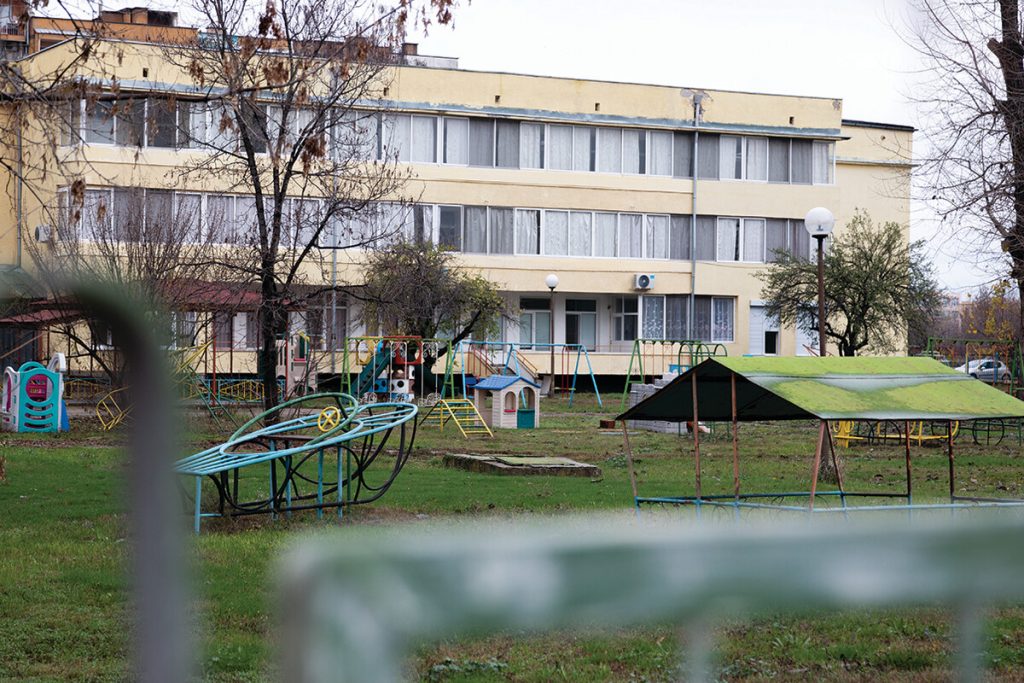
The EU Strategy on the Rights of the Child is a pivotal, years-in-the-making, initiative aiming at upholding the rights of children in the EU and globally. The Strategy has been warmly welcomed by children rights’ advocates upon its launch, and we have eagerly awaited its implementation. For this reason, Hope and Homes, along with 17 other organisations, are taking action to share their disappointment and bewilderment at European Member States’ failing to reach an agreement on Council Conclusions supporting the Strategy last 7 October.
At a time when so many children and families are, more than ever, in need of tangible support from national authorities to recover from the health, social and economic crisis caused by the COVID-19 pandemic, we believe that this Strategy is vital for enabling the most vulnerable families to thrive and to avoid social exclusion, poverty, and family separation.
We are therefore ready to take steps to alert decision makers of this worrying hurdle to a strong commitment to childrens’ rights.
To read our full statement, click here.
The post Time for EU Member States to commit to the EU Strategy on the Rights of the Child appeared first on Hope and Homes for Children.
]]>The post A worrisome U-turn on ending the institutionalisation of children in Ukraine appeared first on Hope and Homes for Children.
]]>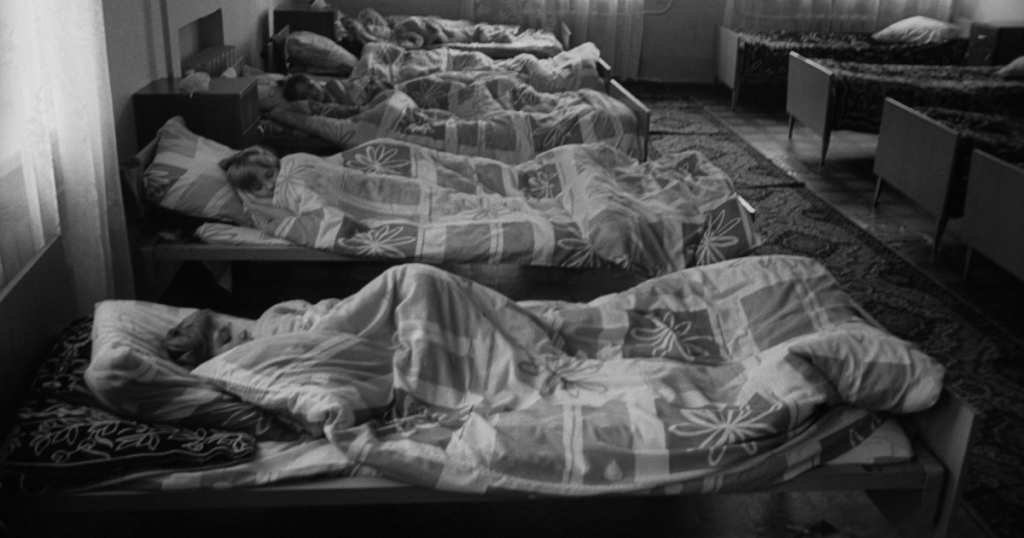
Despite political commitments, Ukraine remains one of the countries in Europe with the highest rate of child institutionalisation. There are an estimated 100,000 children living in various forms of institutions in Ukraine, including baby homes for children 0-4 years old. In light of these harrowingly high numbers, the Ukrainian Government adopted in 2017 the National Strategy of Reforming the System of Institutional Care and Upbringing of Children (2017-2026), an Action Plan for the implementation of its first stage and, in June 2020, an Action Plan for the second stage of the reform.
In December 2020, following concerning messages indicating a potential backtracking of the reform, a coalition of over 20 European and Ukrainian organisations issued a call to action, urging the Ukrainian government to continue upholding its commitments to put an end to the institutionalisation of children. Our call has not been heard.
Ukraine seeks to amend its reform strategy
In June 2021, the Ukrainian Government adopted the order of the Cabinet of Ministers of Ukraine “On amendments to the National Strategy for Reforming the System of Institutional Care and Upbringing of Children for 2017-2026”.
Most notably, the order is set to exclude special boarding schools, education and rehabilitation centres and sanatorium boarding schools from the scope of the reform. It also excludes the legal ban on the placement of young children in institutions, alongside other meaningful indicators aimed to decrease the number of institutions and the overall number of institutionalised children. In other words, Ukraine will continue to institutionalise children younger than 3 years old, and walk back on its previous commitment to reduce the scale of institutionalisation.
Alongside Lumos, SOS Children’s Villages, Save the Children, Eurochild, Disability Rights International, Validity Foundation and ENIL, we denounce the Ukrainian government’s decision and will pursue all possible avenues to challenge these unjust and unjustified exclusions. We call on the international community to continue engaging with the Ukrainian government and urge them to reverse this decision, in the best interest of the children of Ukraine.
Read the full joint statement here.
Read previous call to action to the Ukrainian government from 2020
The post A worrisome U-turn on ending the institutionalisation of children in Ukraine appeared first on Hope and Homes for Children.
]]>The post “Put the money where the love is” Reflections on the UN Day of General Discussion appeared first on Hope and Homes for Children.
]]>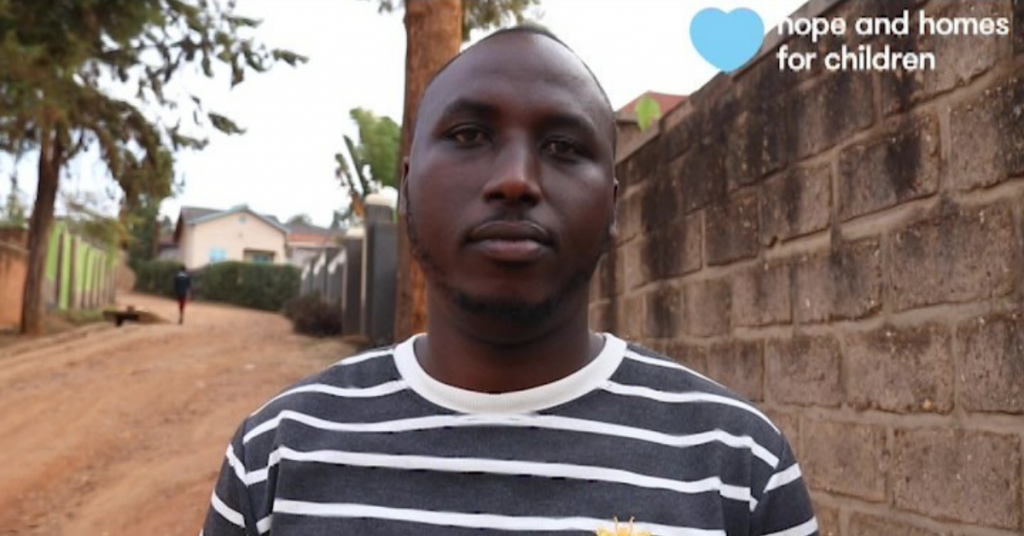
That is why the UN Committee on the Rights of the Child (CRC)’s DGD which took place this September was so important. Hope and Homes for Children are proud of the central role we took in the preparations for this important event. We worked collaboratively with other CSOs to heavily influence how it was organised, by:
- Influencing the contents preparations (concept note, guidelines for consultations, etc.)
- Contributing to shaping the programme and supporting speakers (e.g. our Country Director for South Africa, Lourenza Foghill, and a young person with disabilities from our Rwanda programme, Aime de Jesus).
- Co-leading the workstream on child and youth participation
- Supporting the organization of regional DGD Hubs (Particularly the one for East and Southern Africa)
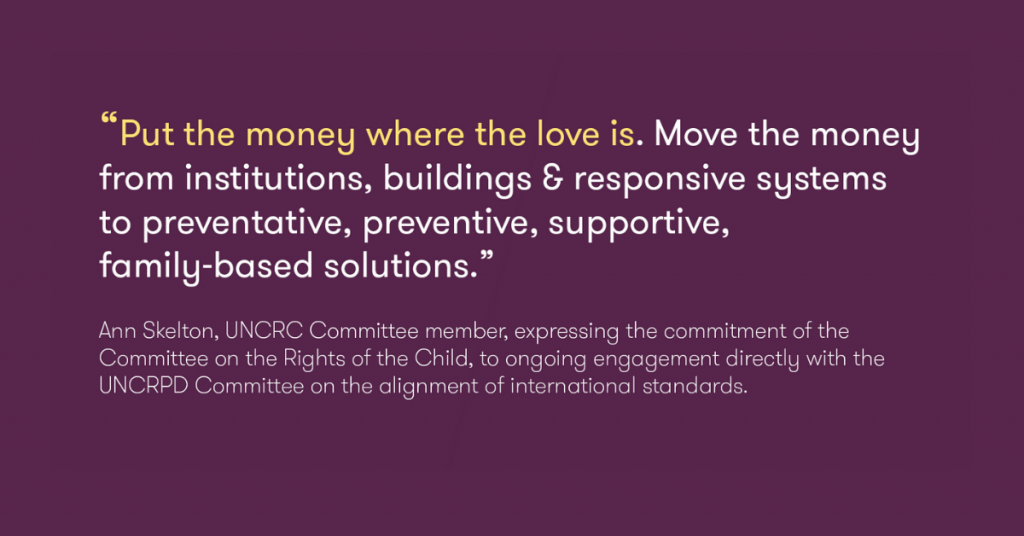
UN Convention on the Rights of the Child DGD on Children’s Rights and Alternative Care 2021
The 2021 DGD took place on 16/17 September 2021. All in all, it was a very successful event. The choice of a remote conference, despite the technical headaches, proved a winning strategy. It democratised the event and allowed for genuine participation from different world regions. The voices of children and young people were front and centre of the DGD, in a very genuine and non-tokenistic way – delivering powerful messages and testimonies directly to the UN Committee on the Rights of the Child. Preventing children from going into institutional care was one of the most important issues raised by the young people. Along with feeling loved, respected, safe and protected from abuse and violence.
Outcomes
We are delighted to have been involved in supporting children and young people in co-creating the Day of General Discussion, its working groups and individual sessions.
- More than 500 children, young people, governments, academics and experts gathered for the Day of General Discussion, including more than 200 submissions, and a global survey of children and young people with care experience, with more than 1100 responses from 50 countries. The Day of General Discussion had at least the same number of care experienced children as adults speak throughout the event – this is a unique achievement.
- Aimé de Jesus, a care leaver from Rwanda, supported by Hope and Homes for Children gave an excellent presentation, reflecting the reality that children with disabilities with the right kind of support can and should be included in deinstitutionalisation programmes. Lourenza Foghill, our regional director for South Africa, presented an expert view of the importance of prevention and building resilient communities, sharing Hope and Homes for Children’s experience in South Africa.
- Hope and Homes for Children was pleased to see that the messages of our submissions to the DGD were taken on board by members of the Committee on the Rights of the Child. These included calls for better coherence within the UN human rights system and for regional conversations among governments to follow up from the DGD.
- Hope and Homes for Children championed regional consultations in the run up to the DGD, these were most effective at projecting new voices and viewpoints into this debate.
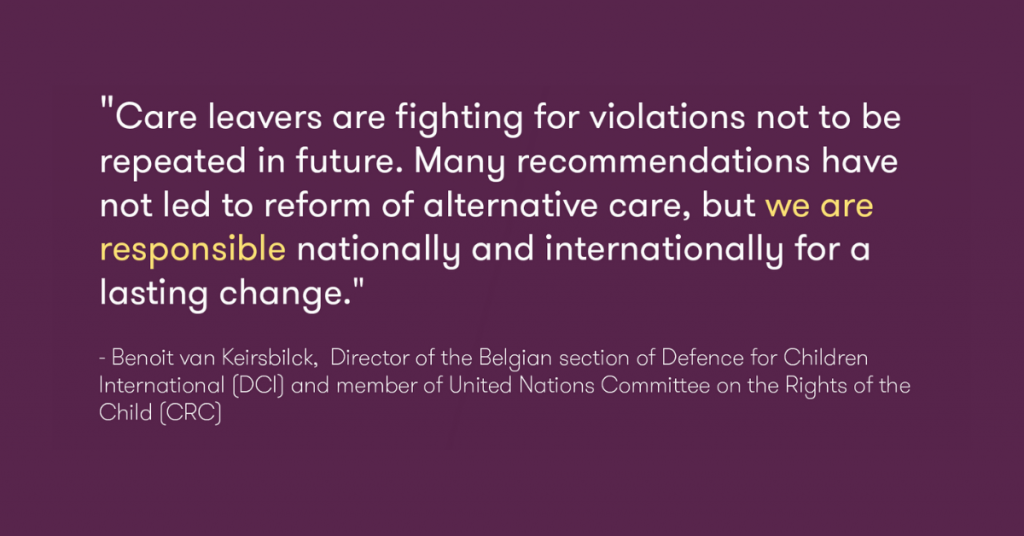
What’s next?
We will work with other NGOs to call for members of the UN Committee on the Rights of the Child and the UN Committee on the Rights of Persons with Disabilities to engage in dialogue about alternative care and come up with joint language and guidance for States related to alternative care, care reform and institutionalisation of children.
The DGD should be understood as a process, rather than a single event. Over the last year and a half, we have strengthened collaboration with civil society, kept up global momentum for care reform and invested in the meaningful participation of children and young people with care experience from all over the world. This process doesn’t end now – we will continue engaging with the UN human rights treaty bodies (particularly the Committee on the Rights of the Child and the Committee on the Rights of Persons with Disabilities) to ensure our messages are delivered to UN member states through the UN treaty bodies reporting system. We will also channel the positive energy created by the DGD into more permanent frameworks for joint advocacy actions, such as the Collaborative Platform.
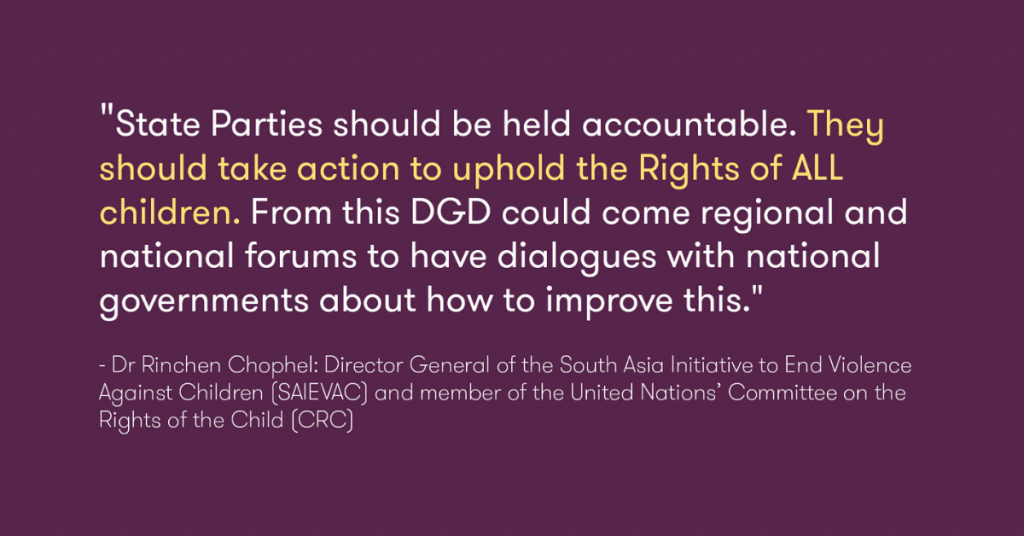
Links:
United Nations: Committee on the Rights of the Child
The post “Put the money where the love is” Reflections on the UN Day of General Discussion appeared first on Hope and Homes for Children.
]]>